
Today, I would like to introduce about our “Fish Elementary School”.
Fish Elementary School (FES) is an online educational program about fish and the sea, for kids and parents in Japan. The key concept of FES is “learn about connection between ocean and us, through fish”.
As an island contry, we Japanese people consume a lot of seafood, but we rarely think about the ocean and fishermen, where the fish come from and who catch the fish. As the result of lack of care about the ocean, our ocean is sufferd by overfishing, plastic deblis, destruction of natural coast and marine habitat. To protect ocean and fishery resorces, so that our future generation can gain the gift from the sea, we need to learn about the ocean, and to take care about the sea.
Although it is ideal that all the children in this country can learn about ocean from primary education, it is not realistic to expect elementary school teachers learn and teach about ocean, in addition to their daily classes, as thery are too busy these days. Therefore we decided to start an original education program three years ago.
FES as an online cource
We hold a class every saturday morning from 9am to 9:30 am followed by a question-and-answer session. We focus on one species (or a group of species) every month as follows. We have 4 classes every month, so we talk about biology of the species, fishery, food culture, history, environmental issues and conservation.
January: Sharks
February: Sardines
March: Seaweed
April: Tuna
May: Sea breams
June: Corals
July: Squid and octopus
(August: summer vacation)
September: Sea shells
October: Salmons
November: Cod and pollock
December: Crab and shrimps
For example, we focused on seaweed in March. In the first week, I explained that seaweed is a kind of plant. Then I conpared seaweed and land plants. I also explained the there are three types of seaweed – red, brown and green. We sent samples of seaweed for children, so they could observe them at home.
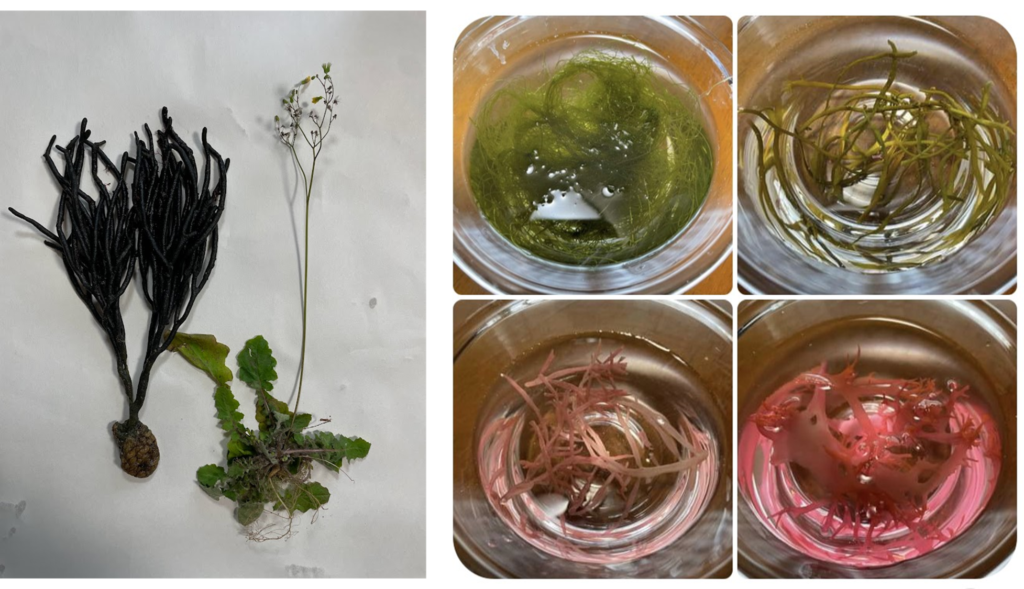
We talked about seaweed cultivation in the second week, and then talked about wild harvested seaweed in the third week. We mainly focused on wakame, when we talked about farmed seaweed.
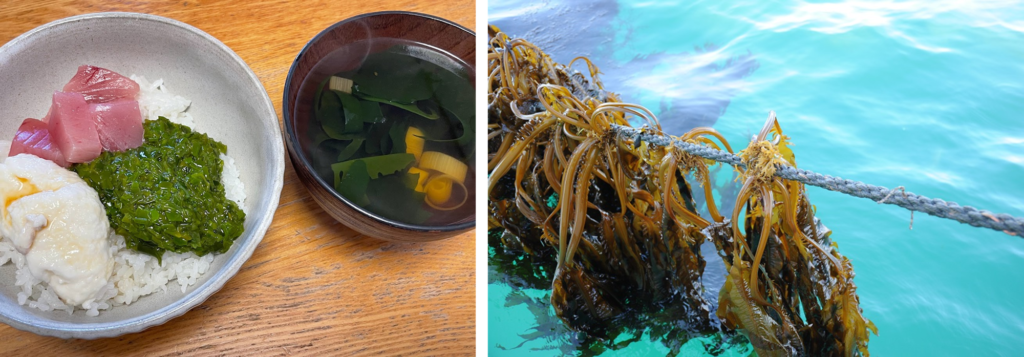
In the forth week, I talked about “seaweed in the world.” Acutually, one kids raised a question in the first week “which country has the largest seweed production in the world?,” the forth class was our answer to him. China is the largest in seaweed production, and Indonesia is the second. I visited seaweed production area in both coutries several years ago, so I could show my photos and speke about my experience.

I also introduced about Giant Kelp in California. I introduced how people protect seaweed forest by prohibitin harvest of giant kelp, and also how people learn about the role of seaweed in marine ecosystem at Monterey Bay Aquarium.
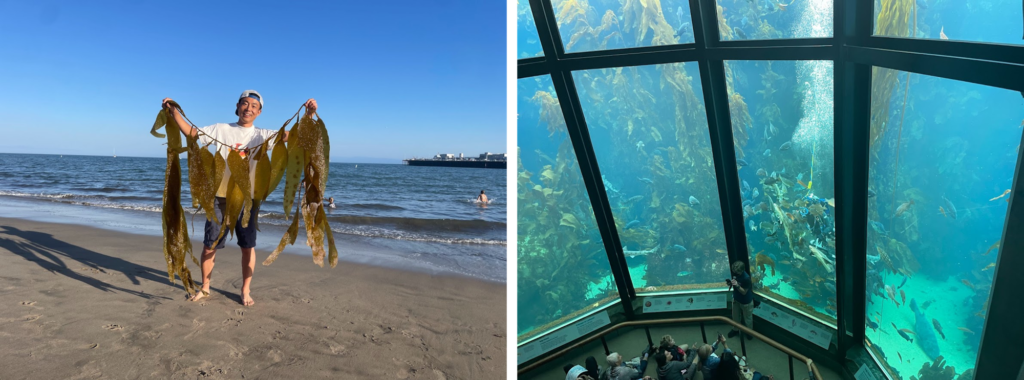
In-person events
Apart from the online classes, we sometimes hold in-person events. Last weekend, we held an event about “tuna”. We prepared a 10kg sized bluefin tuna. Children touch and observe outside and inside of tuna, and finally, they eat tuna sashimi. I think they understand through theier own experience that sushi and sashimi they eat in their daily life really come from the sea. I believe this experience will be the first step in developing their awareness of the need to protect marine resources and the marine environment.
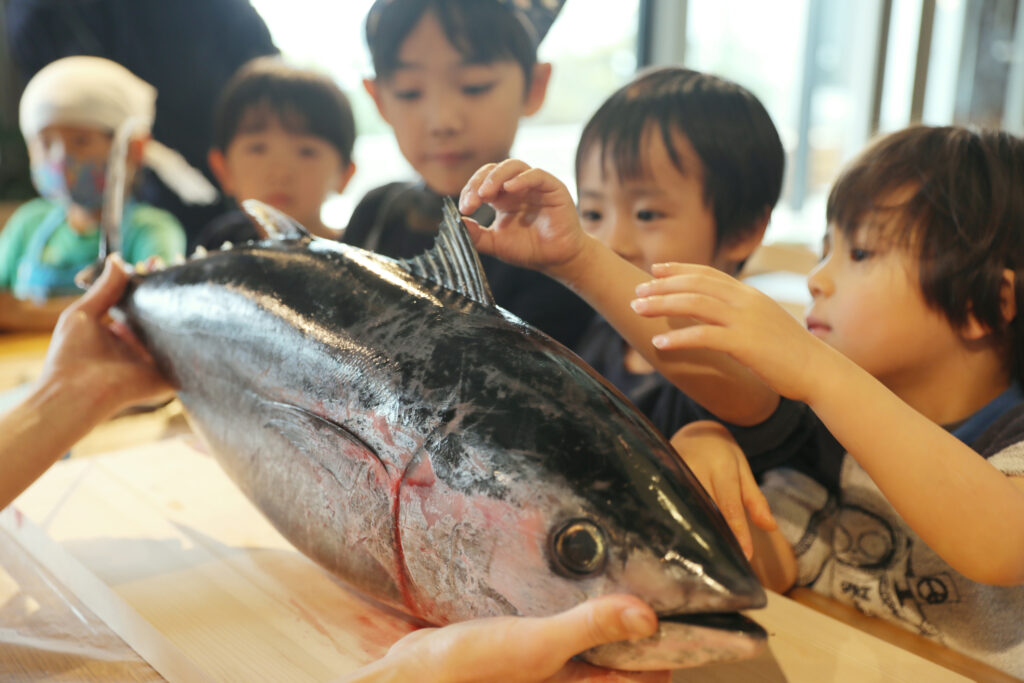
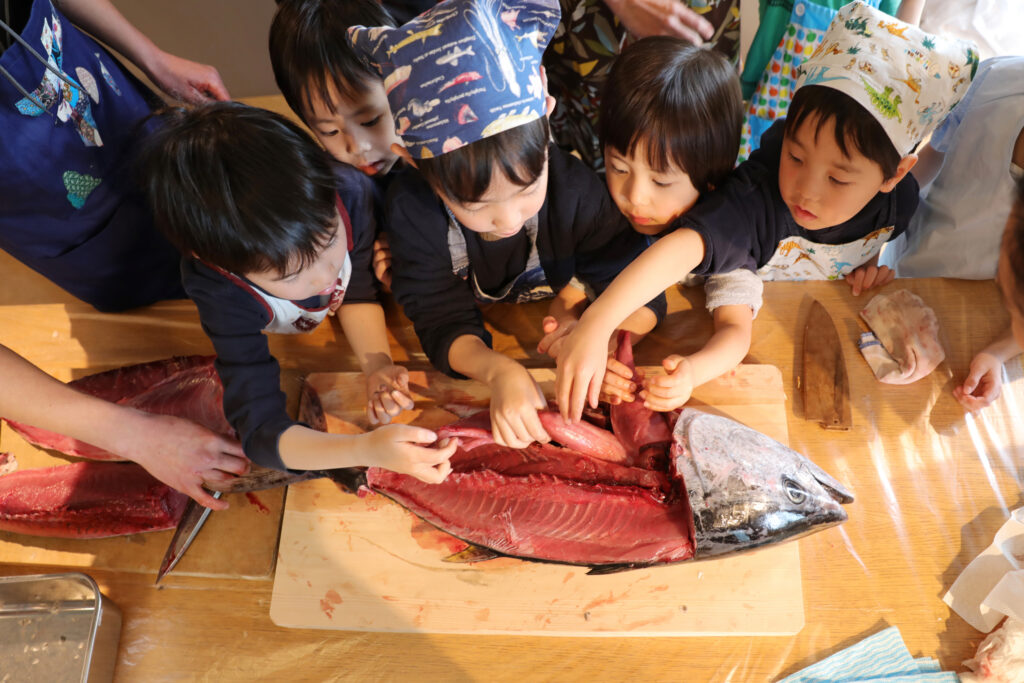
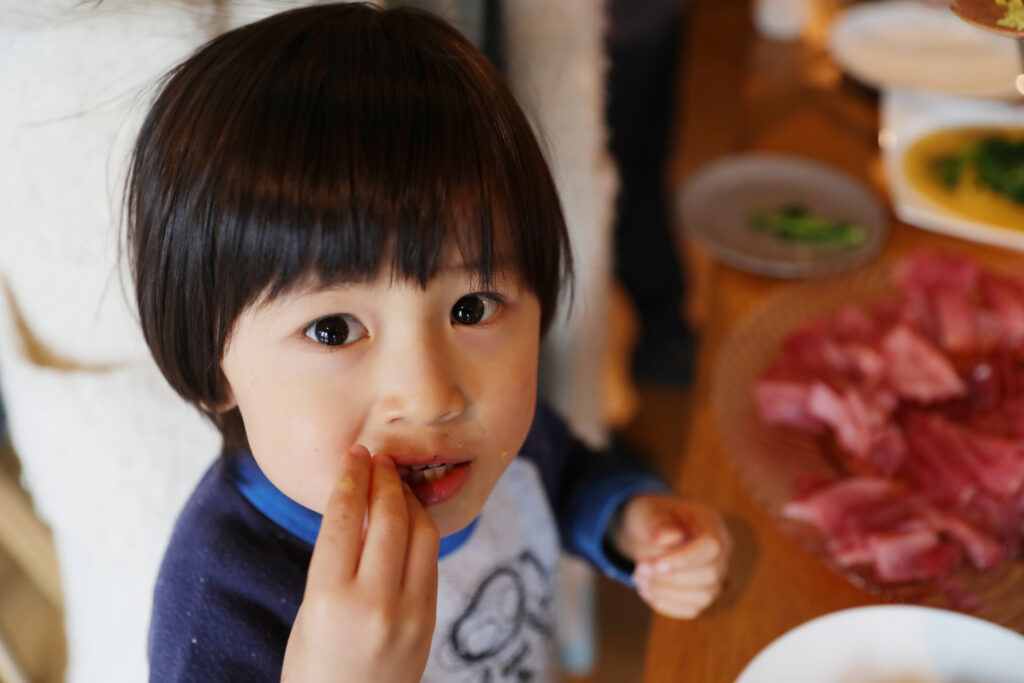
Aiming for a hybrid educational program
We provide an online course in regular basis, and we hold in-person events time to time. Both online lecture and in-person experience have strong and weak points. A good point of online course is that children can learn deeply about the sea and fish from many aspects no matter where she or he is. Lack of real experience is the weak point of an online course.
The advantages of in-person events are that children can have a realistic experience of seeing, touching, and cooking with fish, and that they can interact with other children. However, the limited space and the limited number of children who can participate at one time are challenges for in-person events.
In the future, we would like to create an educational program that effectively combines online programs and face-to-face events.